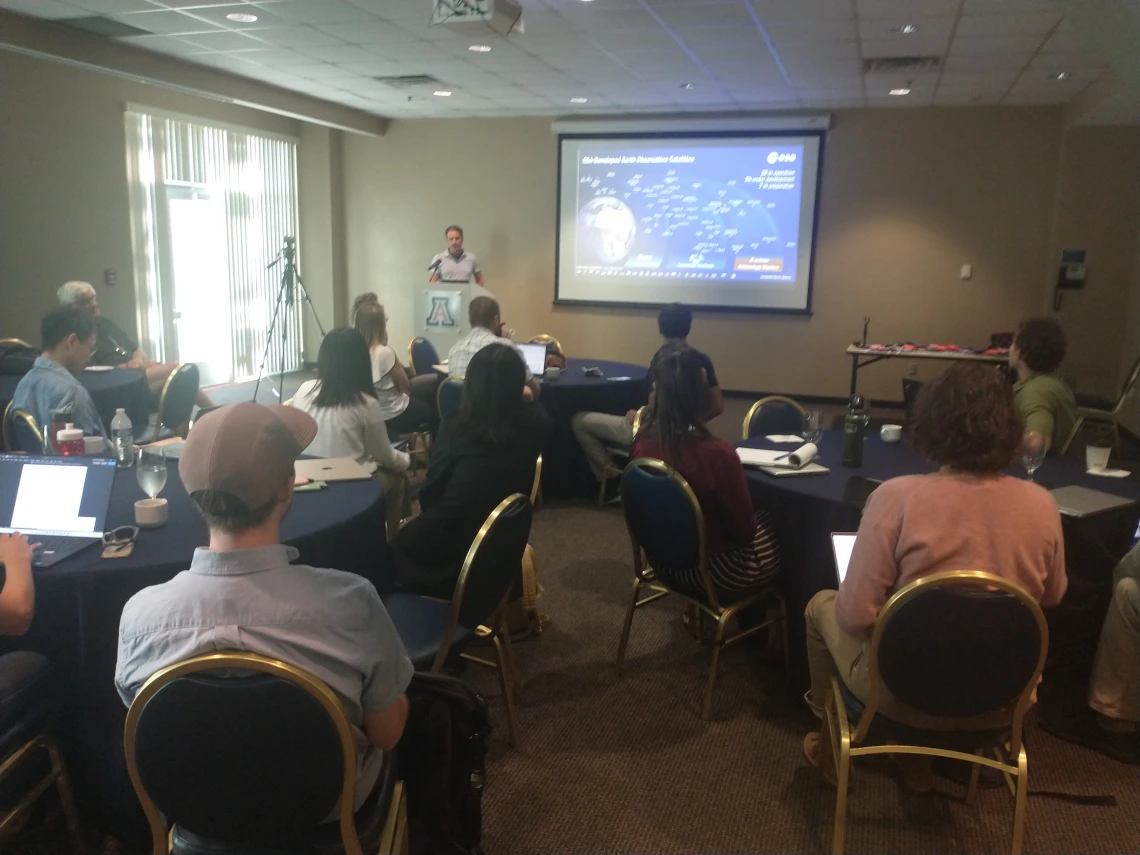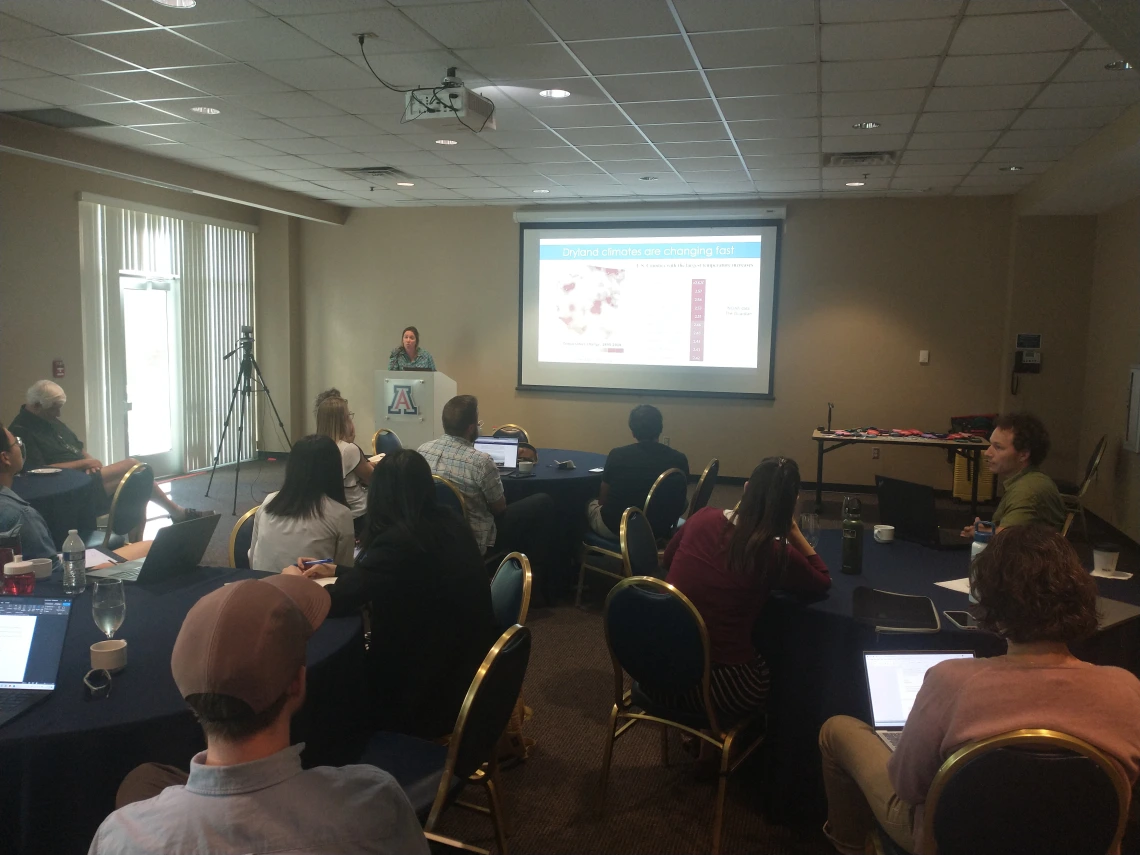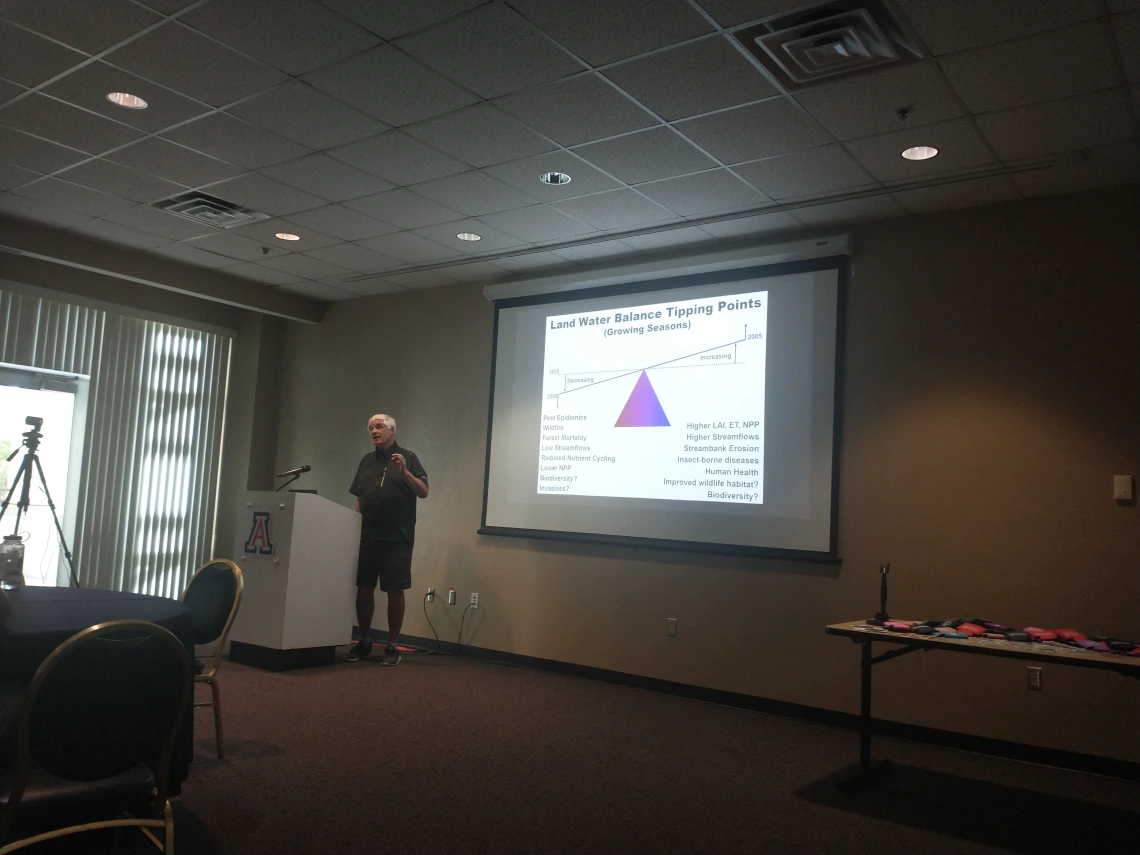Image

Image

Image

When
2 – 5:30 p.m., Oct. 23, 2023
Seminar Schedule (Pacific Time)
- 2:30pm-2:40pm: NASA Terrestrial Ecology Overview
- Ben Poulter (NASA)
- 2:40pm-2:50pm: ARID Introduction
- Sasha Reed (USGS)
- 2:50pm-3:40pm: Dryland Seminar
- Steve Running (University of Montana)
- 3:40pm-4:30pm: Dryland Seminar
- Compton J. Tucker (NASA)
- 430pm: Discussion
ARID Overview
ARID is a scoping study selected by NASA’s Terrestrial Ecology (TE) Program to work with dryland scientists and stakeholders as well as the remote sensing community to outline a future NASA field campaign focused on drylands. If NASA selects this study, they will commit approximately $100M over a 5-7 year period to a field campaign aimed at improving our understanding of drylands via linking field measurements with NASA satellite observations. Previously funded campaigns include ABoVE, LBA, and BOREAS. Our scoping study will take place over the next ~12 month period ending with a final report submitted to the NASA TE Program.
